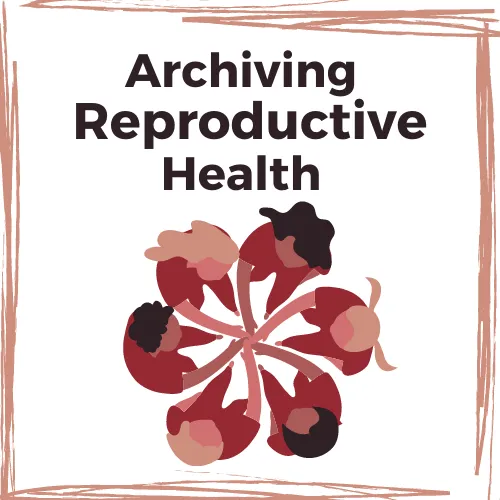Applications are invited for the role of Digital Archivist and Coordinator as part of the Digital Repository of Ireland (DRI) team based at the Royal Irish Academy (RIA).
Applications are invited for the role of Digital Archivist and Coordinator. The successful applicant will contribute to the Wellcome Trust funded project ‘Digital Preservation of Reproductive Health Resources: Archiving the 8th‘ (‘Archiving Reproductive Health’) as part of the Digital Repository of Ireland (DRI) team based at the Royal Irish Academy (RIA). This project aims to provide long-term preservation and access to the many at-risk archives generated by grassroots women’s reproductive health movements during the campaign to repeal the 8th Amendment. The three-year project was launched in 2020 and is funded by a grant of €383,481.00 from the Wellcome Trust. It is led by the DRI partner institutes Trinity College Dublin, Maynooth University, and the Royal Irish Academy in collaboration with a number of additional content partners.
Role profile
This role will focus on the ‘Archiving Reproductive Health’ project. The aim of this post is to assist key stakeholders with data from civil society organisations in the preparation and ingest of their data to DRI, in line with key archival practice. The successful candidate will be responsible for project management and reporting, developing a specialist vocabulary and a public registry of at-risk content, hands-on digital asset preparation and ingestion, coordinating with external stakeholders, providing training, and organising a range of events.
Key accountabilities
- Reporting to the DRI Director, working to deliver a successful and timely project with guidance from the project steering group, in collaboration with the project team and other DRI staff.
- Lead project management duties such as project planning, project reporting, metrics collection, event organisation, project communication and dissemination.
- Lead the development of a vocabulary/taxonomy for reproductive health datasets in close collaboration with project staff (i.e. the postdoctoral researcher and software engineer) and create a public registry of at-risk content.
- Hands-on digital asset preparation, metadata annotation and enrichment, data ingestion into the DRI repository of organisational datasets.
- Coordinate with external organisations who hold relevant collections, provide training and assistance with archival workflows, collection management hands-on tasks identified above.
- Organise events such as public collection days, community engagement events, and educational/dissemination events.
- Participate in DRI staff and project meetings, DRI cross-functional Task Forces, and other DRI activities as assigned.
Essential criteria
- A degree level qualification in library, information or archival studies or a same level qualification in a related discipline.
- Expertise in cataloguing specialist subjects with established metadata standards or working with taxonomies/vocabularies/ontologies.
- A minimum of 2 years experience with project management and/or organising events including their administration, budgeting, planning and delivery.
- Evidence of excellent oral and written communications skills
- Experience of developing and providing training on specific topics at the level required.
- Demonstrated ability to work in a fast-paced environment and deliver to deadlines
- Excellent interpersonal skills and the ability to operate flexibly as a member of this cross-disciplinary team
Desirable criteria
- Working experience with Dublin Core, MARC 21, MODs, or EAD
- Understanding of social and/or political movements and contemporary Irish history
- Skills and expertise in more than one of the following: digital preservation, digital curation, content management and organisation, copyright in digital environments
- Experience with qualitative data or oral history research methods
- Academic publications and presentations
Project: 24 months Specific Purpose Contract
Salary: The salary for this post shall be €45,842-€60,981 in line with the AES scale. Salary is non-negotiable in line with the Financial Emergency Measures in the Public Interest Act 2013. The rate of remuneration may be adjusted from time to time in line with Government pay policy.
Hours of Work: Normal hours of work are 37 hours per week as follows: –
Monday to Thursday: 9.00 a.m. to 5.30 p.m (with one hour for lunch)
Friday: 9.00 a.m. to 5.00 p.m (with one hour for lunch)
Hours of work may be adjusted from time to time in line with government policy. Some flexibility around working hours will be required in response to the varying demands of the role.
Leave: The annual leave entitlement is 25 days per annum, pro-rata for shorter periods. Entitlement to leave for Public Holidays is in accordance with the terms of the Organisation of Working Time Act 1997.
Medical: Staff shall, if required, and at the expense of the Academy, submit to a medical examination by a registered medical practitioner nominated by the Academy and shall authorise such medical practitioner to disclose and to discuss with the Academy the results of the examination and the matters which arise from it so that the Academy can ascertain any matters that they consider might impair a staff member from properly discharging his/her duties.
Pension: Details of the appropriate pension scheme will be provided upon determination of appointee’s status.
Permanent Pension Contribution: This appointment is subject to the Additional Superannuation Contribution (ASC) effective from 1 January 2019.
Application process:
Completed applications consisting of one electronic copy with all documents contained in one MS Word file (or word file plus a pdf) must be submitted to i.marcu@ria.ie (Ioana Marcu) in the order as set out below:
A brief cover letter and personal statement demonstrating how you meet the requirements for the post (max 500 words)
A curriculum vitae summarising your qualifications and relevant experience (max. 4 pages)
Should you choose to send applications by post, please ensure you obtain proof of postage and allow sufficient time for receipt of application, prior to the closing date.
Applicants will be shortlisted on the basis of information provided in their application. Incomplete applications will not be processed.
Please note; Failure to fulfil all the application requisites will deem the application invalid.
Referees:
Referees will be contacted with your permission, should an offer of employment be pending. As you will be required to furnish a list of 3 referees, prior to interview, it would be helpful if you would notify your referees that the Academy may be contacting them directly.
Closing date:
The closing date for applications is Tuesday, 22 June 2021. Late applications will not be considered.
Interviews are expected to be held the week commencing Monday, 05 July 2021.
The Royal Irish Academy is an equal opportunities employer.
The Royal Irish Academy (RIA) /Acadamh Ríoga na hÉireann is a predominantly publicly funded institution established for the promotion of learning in the sciences and humanities across the island of Ireland. The Academy was established by Royal Charter in 1786 and is governed by the Charter and a set of by-laws. However, as a body that receives the majority of its funding from the exchequer, it is also subject to the provisions of the Code of Practice for the Governance of State Bodies. The three main strands of the Academy’s role, as outlined in its latest Strategic Plan, are to:
- Recognise and foster excellence in research to advance the public good
- Be an independent voice on higher education and public policy
- Represent the world of Irish scholarship internationally
The Digital Repository of Ireland (DRI) is the national trusted digital repository for Ireland’s social and cultural data. The repository links together and preserves both historical and contemporary data held by Irish institutions, providing a central internet access point and interactive multimedia tools. As a national e-infrastructure for the future of education and research in the humanities and social sciences, DRI is available for use by the public, students and scholars. Originally awarded €5.2M from the Higher Education Authority PRTLI Cycle 5 to build the repository and research centre, DRI is funded directly by the Department of Further and Higher Education, Research, Innovation and Science via the Higher Education Authority and the Irish Research Council. For more information see www.dri.ie. The DRI is located within the Royal Irish Academy.








